CLOSE
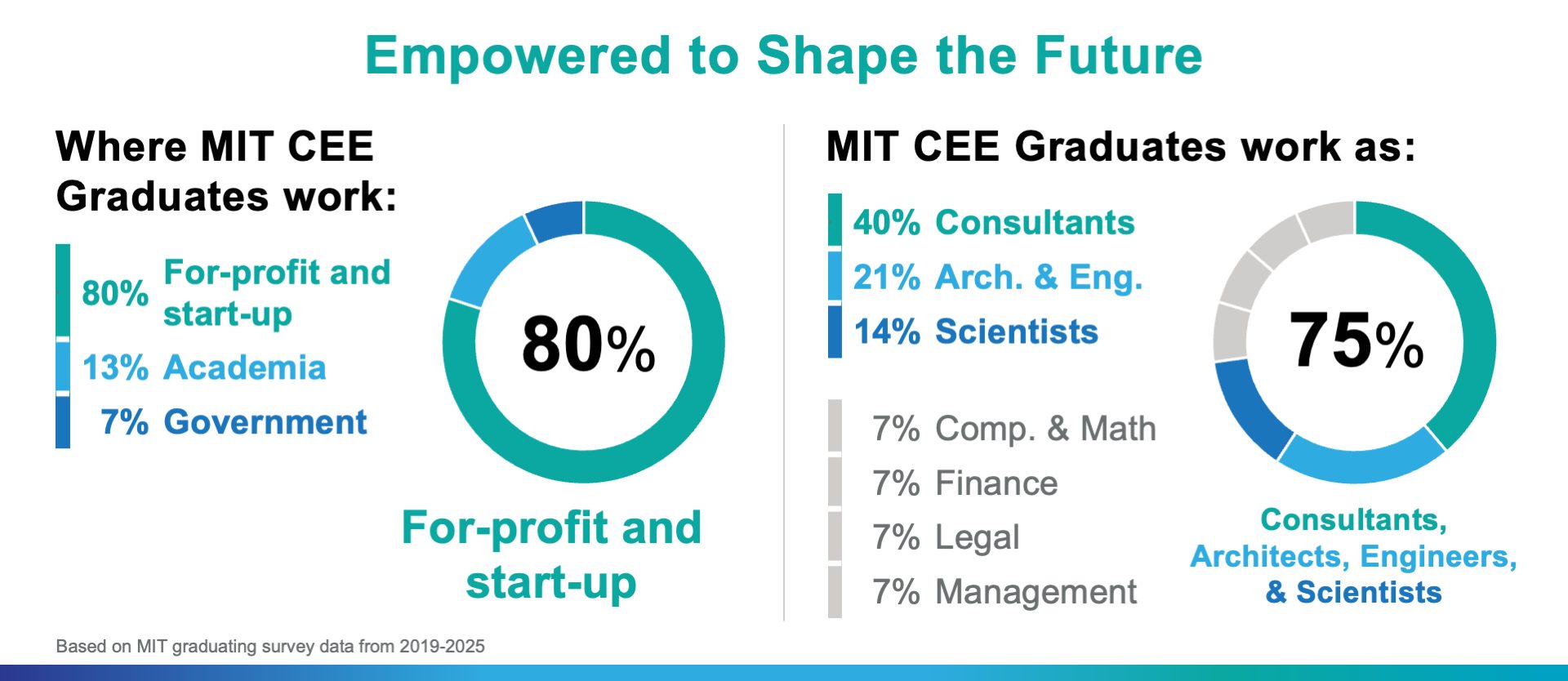
Our graduates carry out pioneering research in universities, work in for profit organizations and engineering firms, launch their own start-ups, hold leadership positions in government and nonprofit organizations and enter the emerging career paths in environment sustainability and renewable energy. With a degree in Course 1 students pursue careers in fields as diverse as energy and environment, engineering systems design, law, medicine and public health.
Learn more about our alumniDownload Brochure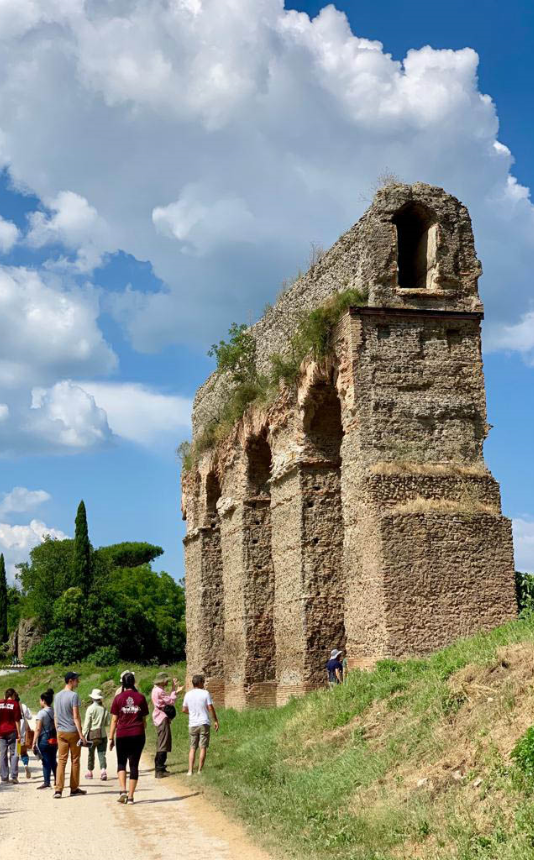
MIT’s Civil and Environmental Engineering undergraduate program (Course 1) offers a rigorous, ABET-accredited curriculum led by world-renowned faculty, preparing students for impactful careers across non-profit, government, private, and tech sectors. This interdisciplinary major empowers students to tackle urgent global challenges—like climate change, urbanization, and infrastructure resilience—by integrating engineering with chemistry, biology, physics, computer science, machine learning, and urban planning. Students gain hands-on experience through fieldwork and the Undergraduate Research Opportunities Program (UROP), exploring topics from atmospheric chemistry in Hawaii to ancient Roman infrastructure in Italy.
Civil and environmental engineers design sustainable infrastructure, safeguard natural resources, and develop innovative materials that improve lives worldwide. With a deep understanding of the human-built environment and its interaction with nature, students graduate equipped to create transformative, real-world solutions that shape a more resilient and sustainable future.
Course 1-ENG offers a dynamic, interdisciplinary approach to engineering education. You’ll integrate scientific insight, data, and engineering design to develop sustainable solutions — from understanding the behavior of materials and environmental systems to designing resilient infrastructure, clean energy and mobility networks, and healthy ecosystems. Course 1 might be a great fit if you’re curious about:
The requirements for the Course 1 Bachelor of Science in Engineering (Course 1-ENG) are designed to allow students to explore the civil and environmental engineering discipline area that excites them most. In addition to mastering the fundamentals, students can delve into one of three emerging core areas within civil and environmental engineering—Environment, Mechanics & Materials, or Energy, Transportation & Societal Systems—each offering specialized tracks for deeper exploration, along with hands-on labs and fieldwork classes
Learn more about the degree program and requirements.
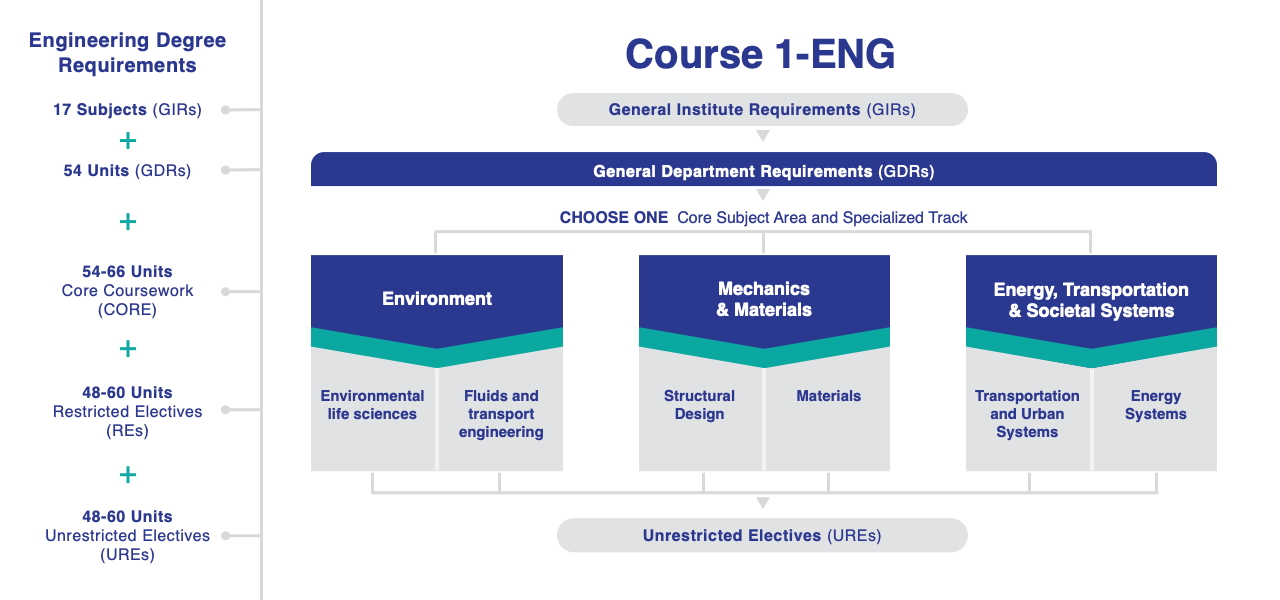
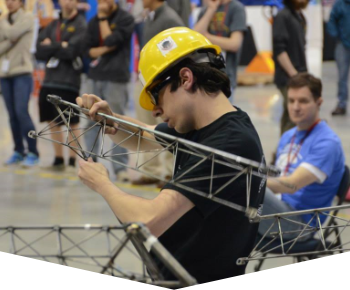
Tackle today’s infrastructure and materials challenges with a strong foundation in structural mechanics and design. Explore how materials behave across scales, how structures respond to stress and uncertainty, and how to create innovative, sustainable designs — with growing emphasis on climate-resilient development, decarbonizing, infrastructure, and rethinking material lifecycles.
Learn More
Help conserve and restore Earth’s natural resources to improve lives and protect the planet. The Environmental Engineering track combines rigorous science with real-world engineering applications to understand and improve the quality of our land, water, air, and public health.
Learn More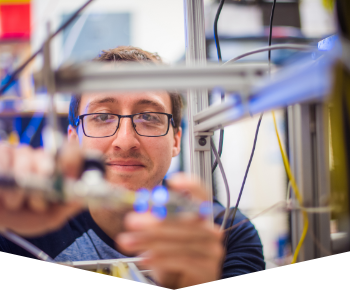
Leverage the power of data and advanced decision-making tools to improve how we move, live, and use resources in a rapidly changing world. Choose the ETSS core track to develop and apply methods from network science, optimization, control theory, and data analytics to design smarter, more resilient systems.
Learn MoreJointly offered by CEE and the Department of Earth, Atmospheric and Planetary Science (EAPS), the Course 1-12 bachelor of science combines scientific understanding of the Earth’s systems with engineering skills—as well as an understanding of human and institutional behavior—to prepare students for careers in the global response to climate change.
Learn more about the program and degree requirements at climate-major.mit.edu
MIT CEE undergraduates with a strong academic record have the option to pursue their graduate degree studies alongside their undergraduate studies to obtain a Master of Engineering. Students take additional subjects, project classes and thesis work that are required within each of the tracks.
For current MIT students, the program is a natural extension of the Institute’s four-year Bachelor of Science degree, providing them an opportunity to gain practical experience and preparing them for emerging fields in today’s job market.
View the MEng degree requirements
Contact the Academic Programs Office to learn more
Learn about civil and environmental engineering as a minor. We offer three interdisciplinary minors to expand your knowledge and maximize career goals, which include:
Minor in Civil and Environmental Systems
Minor in Civil Engineering
Minor in Environmental Engineering Science
Learn more about our Undergraduate Minors
Course 1 students have incredible opportunities to engage in hands-on research that connects them with the community and expands their career prospects.
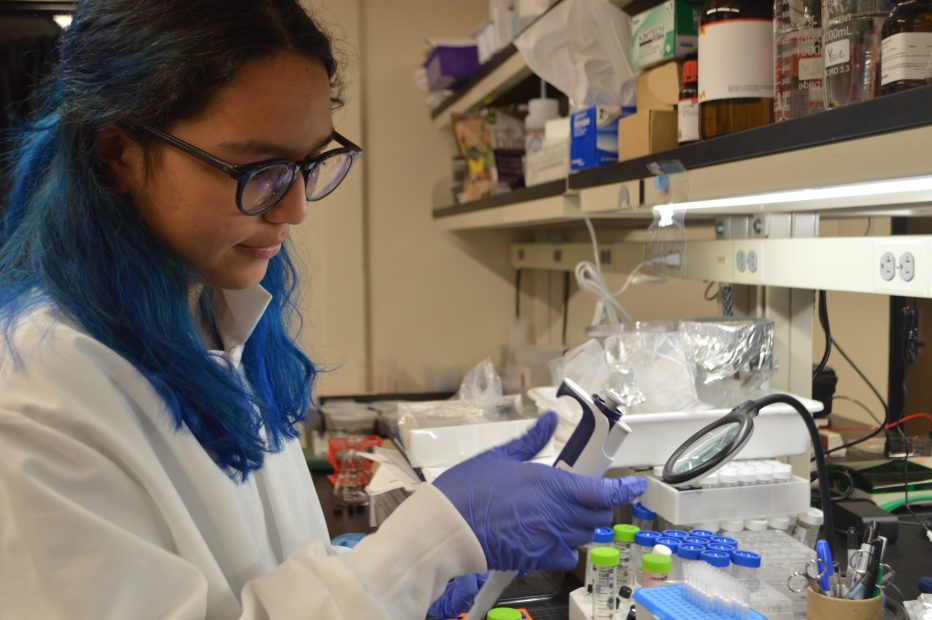
All of the dots are connecting so far in my classes and all the hopes that I have for studying the climate crisis and the solutions to it at MIT are coming true. ”
I knew coming into MIT I wanted to be Course 1 in order to further my knowledge in environmental science and prepare myself for a career that could help change our world's path as we deal with the fallout of climate change. ”
I like that through Course 1 I can combine my interest in engineering, material science, and sustainability. ”
Coming into MIT, I was excited to pursue civil engineering. It seemed like the perfect intersection between design and STEM, and my FPOP and mini-UROP experiences only reinforced that. ”